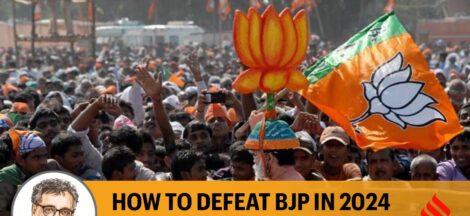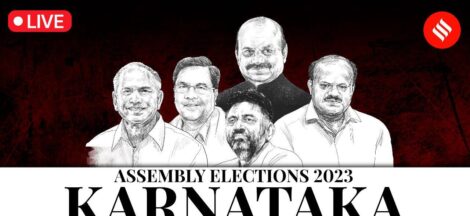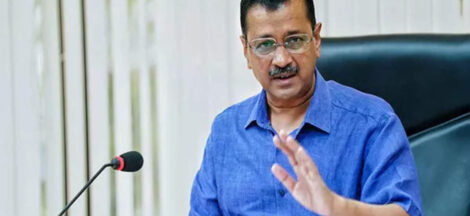By Amritananda Chakravorty
After reserving judgment in Section 377 case, the Constitution Bench of the Supreme Court has embarked on the contentious case of challenging the prohibition of the entry of women (from 10 years to 50 years) into the famous Lord Ayyappa temple in Sabarimala, Kerala [Indian Young Lawyers Association v State of Kerala, Writ Petition (Civil) No. 373 of 2006]. The petition is filed by Indian Young Lawyers Association and other groups who are challenging restrictions based on menstruation on women’s freedoms and access to public spaces, including Sabarimala temple on the basis that such religious practices violate the constitutional guarantees of equality, and non-discrimination. The matter came to be heard by the Constitution Bench, after a reference by the three judge bench in October, 2017, wherein the questions for reference, amongst others, were, “Whether the exclusionary practice which is based upon a biological factor exclusive to the female gender amounts to discrimination and thereby violates the very core of Articles 14, 15 and 17 and not protected by ‘morality’ as used in Articles 25 and 26 of the Constitution?”
Devoid of legalese, the heart of the issue remains the classical tension between women’s fundamental right to equality and non-discrimination, and the gender discriminatory practices of religions justified on the basis of religious freedom. In the present case, the Petitioners argued that the blanket prohibition on the entry of women from 10 to 50 years, owing to the biological reason of menstruation, constituted gender discrimination simplicitor, thereby violating the Constitution. They also argued that the idea of menstuating women as impure, and would defile Lord Ayyappa, who is supposed to be celibate, is rooted in notions of ‘impurity’, thereby amounting to untouchability, which is forbidden under Article 17 of the Constitution. This contention was even supported by the amicus, Raju Ramachandran, Senior Advocate, who stated that the ban was no different from the prohibition on entering places of worship against the Dalits, owing to its basis in notions of ‘purity’ and ‘impurity’. In contrast, the Travancore Devaswom Board argued that the restriction was specific to the character of Lord Ayyappa, who was a life long celibate, and it was a customary practice to undertake 41 days of penance before coming to Sabarimala, which was impossible for women to undertake, owing to menstruation. Doing 41 days of penance was an essential religious practice, which could not be interfered with. The Board further argued that other Ayyappa temples have no such restrictions, and women could pray there, which did not impress the Bench.
Whatever may be the outcome of this case, the proceedings make it crystal clear that religious practices imposing restrictions on women’s mobility, because of menstruation, remain one of the last bastions of gender discriminatory practices, which are increasingly under challenge, whether in courts or in public domain. Starting from Shani Shingnapur temple in Maharashtra to Haji Ali dargah in Bombay, women have been increasingly vocal in their demand to enter the places of religious worship, including their sanctum sanctorum, irrespective of their age. In March, 2016, the Bombay High Court had categorically stated in the context of Shani Shingnapur temple that there was no law denying the entry of women in that temple, and women could enter all parts of the temple, including the inner sanctum. In many of these cases, including Sabarimala, the temple authorities argue that majority of women believers, in fact, have no problem with such restrictions, and apparently have no desire to flout such centuries’ old traditions. This is nothing, but obfuscation of the critical issue of women’s rights and religious customs, and whether the latter can trump over the former. At the same time, most of these customs/practices are rooted in patriarchal notions of alleged impurity of women, owing to menstruation, control over women’s bodies and sexualities, as well as making religious beliefs devoid of women’s experiences.
The question is not why should women fight to enter such patriarchal institutions like Sabarimala temple, but the issue is to get all religious practices tested on the touchstone of the constitutional principles so that no aspect of State affair can remain immune to the constitutional scrutiny, and if they fail the test, the practices have to go, irrespective of how critical they are to the religious group. In this context, the doctrine of ‘essential religious practices’ come into play, which the Supreme Court has held to enjoy constitutional protection under Article 25 of the Constitution. Be that as it may, the fundamental right to religion under Article 25 is subject to the other fundamental rights under Part III, and one cannot possibly justify gender discriminatory practices on the basis of religion. One hopes that the Supreme Court cuts through the fluff, and sees the issue for what it is, gender discriminatory practices rooted in mysogyny and patriarchy trying to be salvaged by religious euphemisms and jargons, and let the constitutional morality reign supreme. (IPA Service)
The post Supreme Court Favours Equality Of Religious Practices appeared first on Newspack by India Press Agency.


